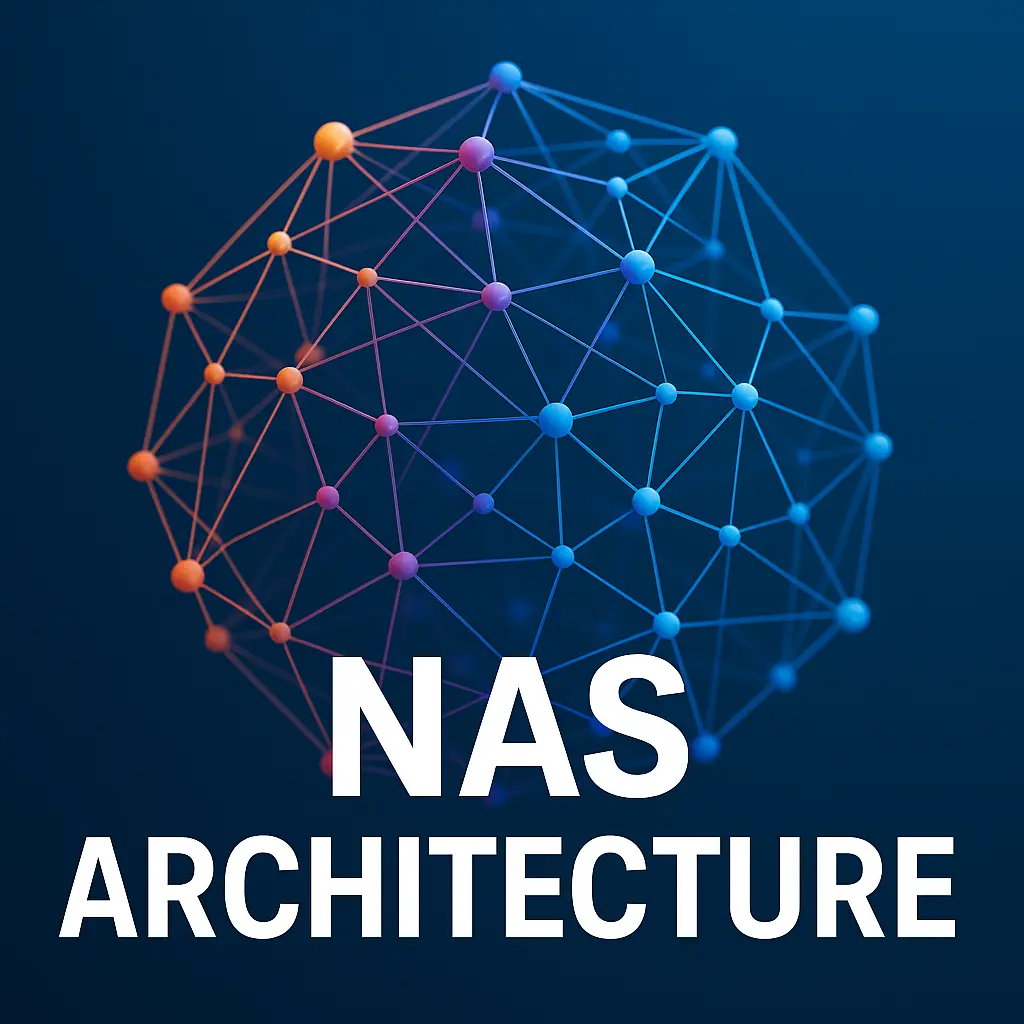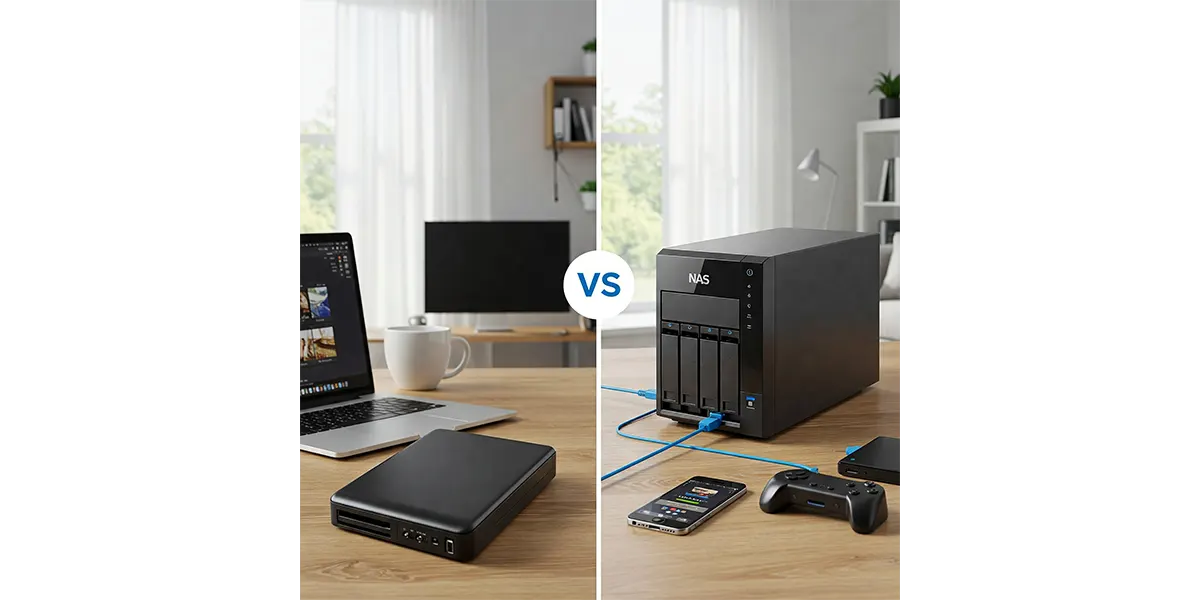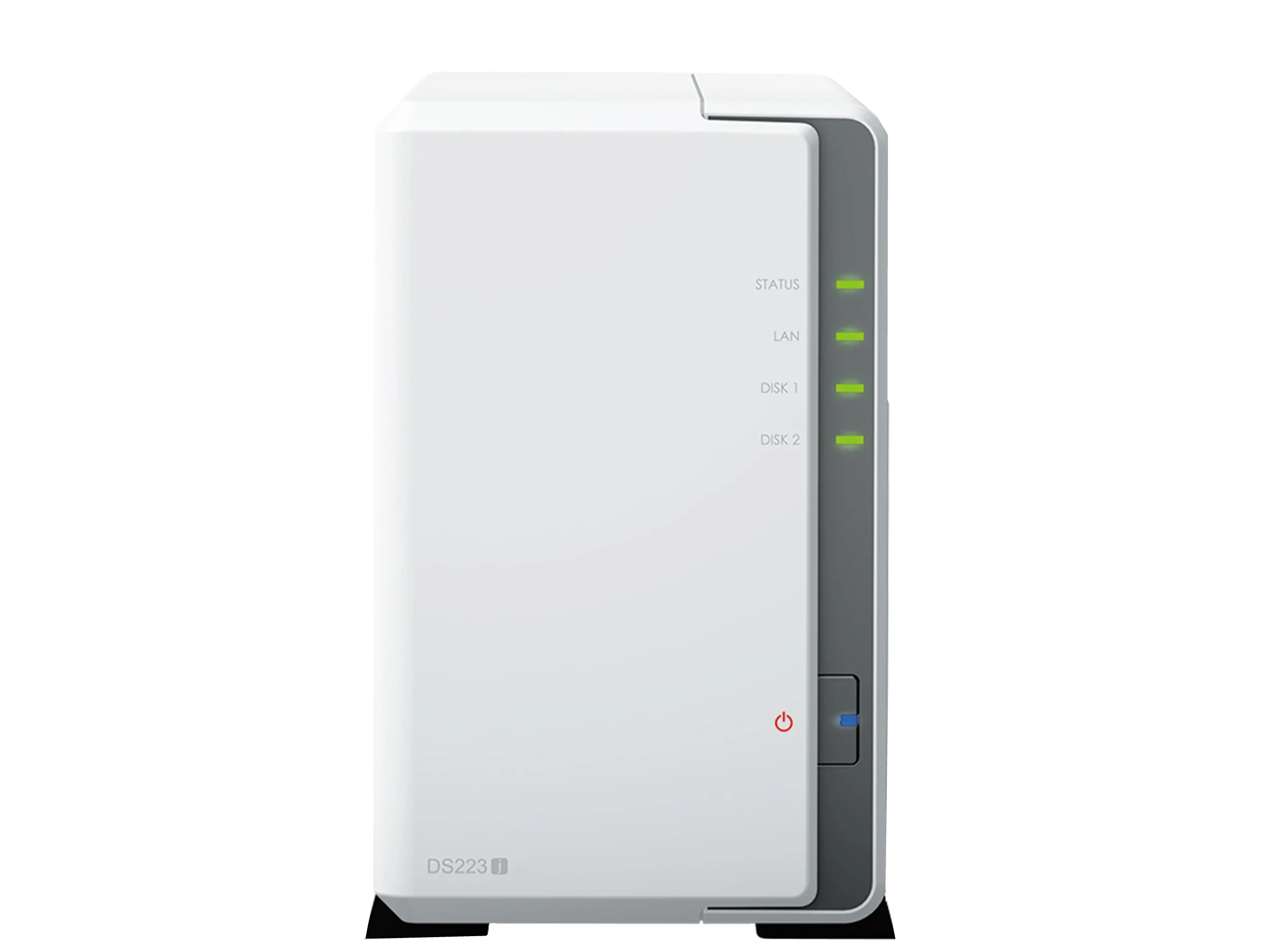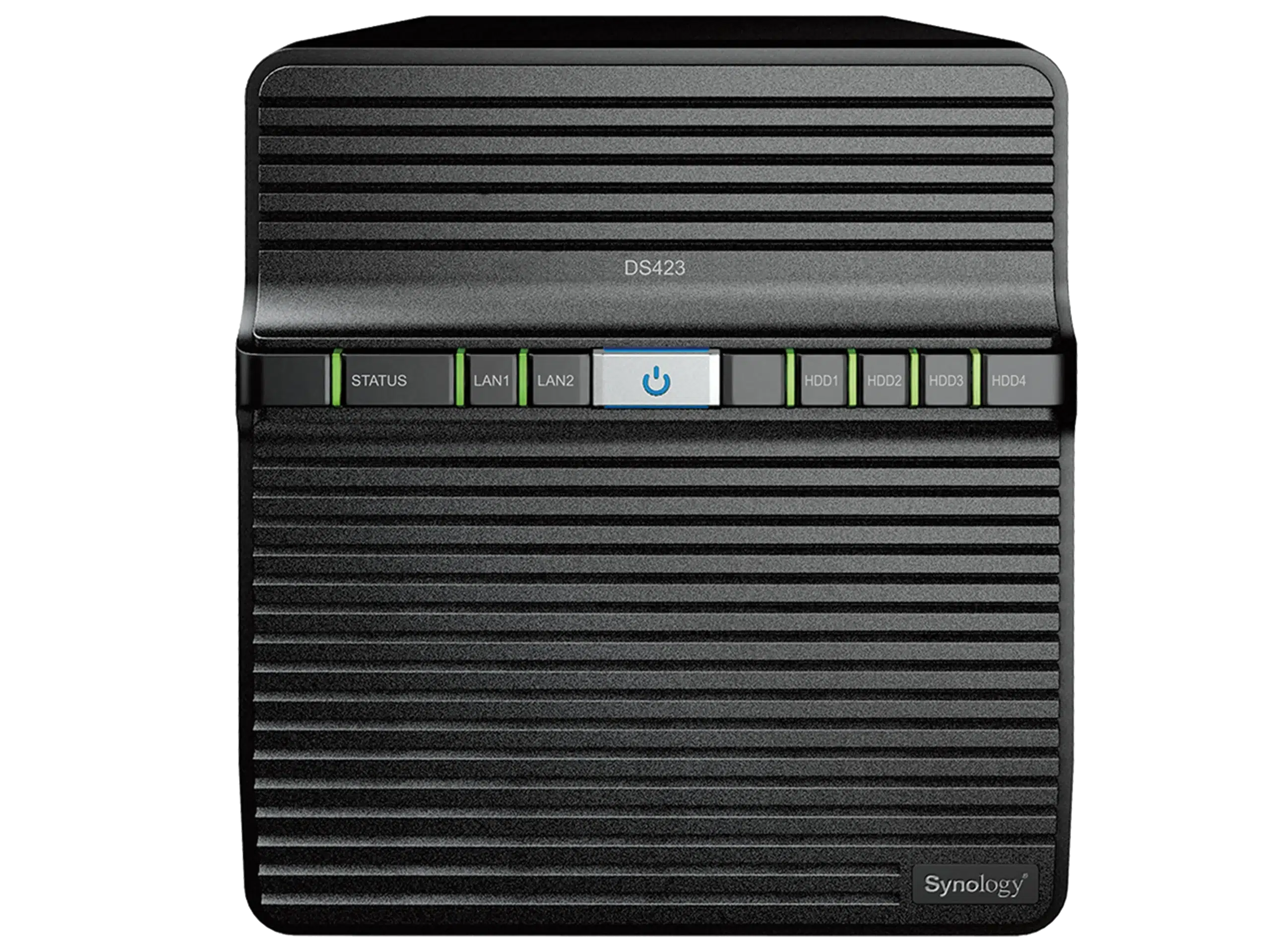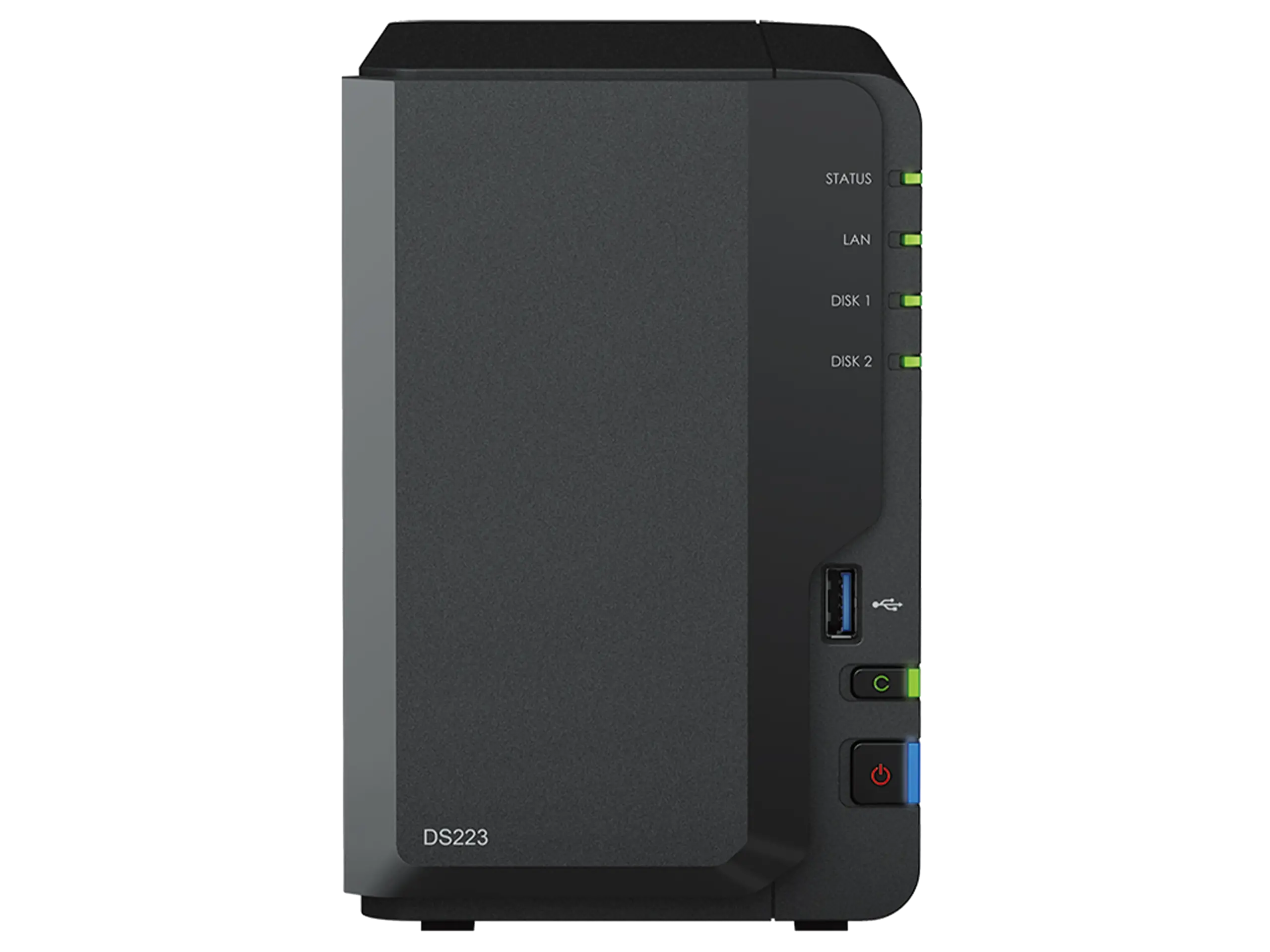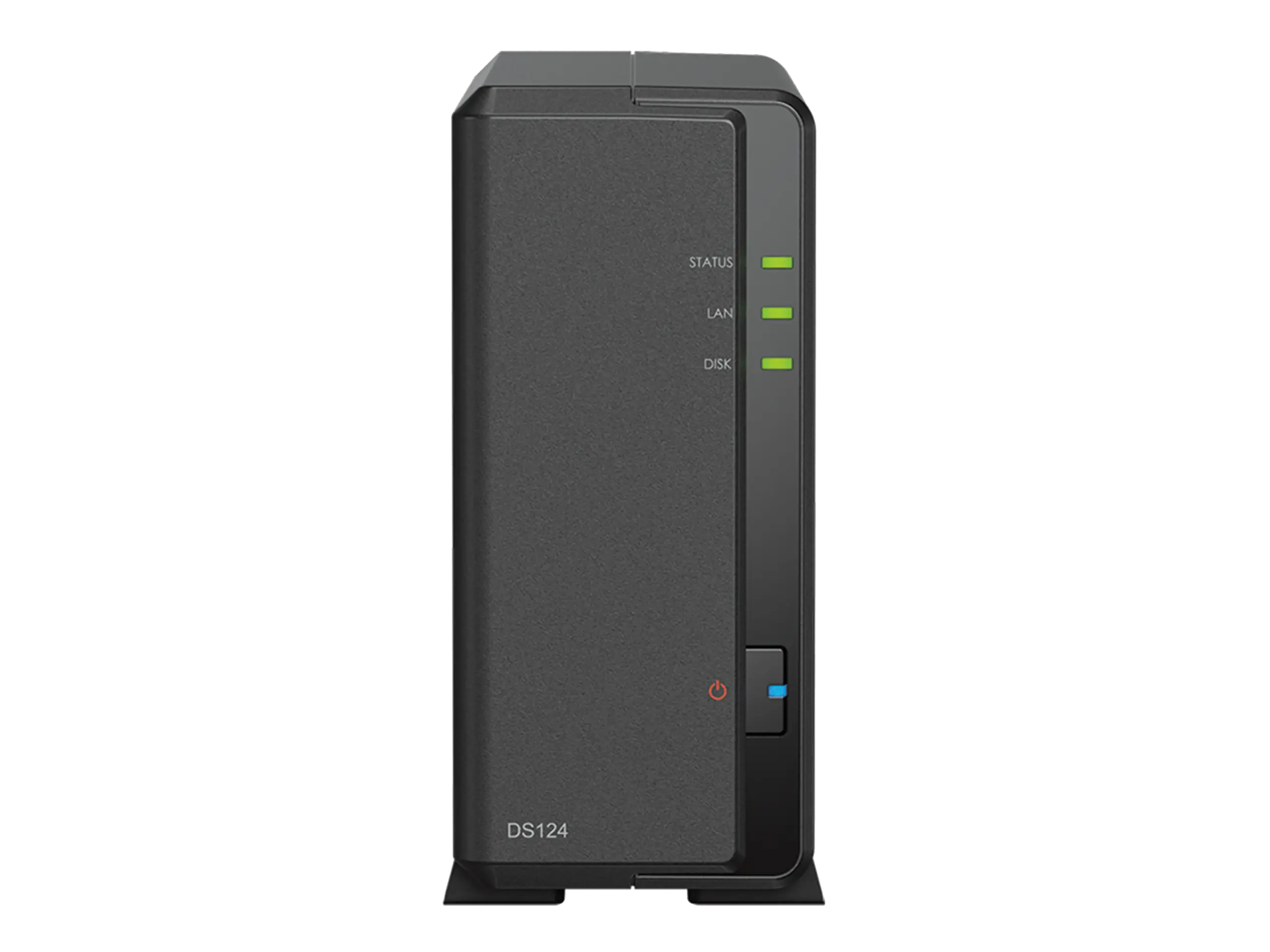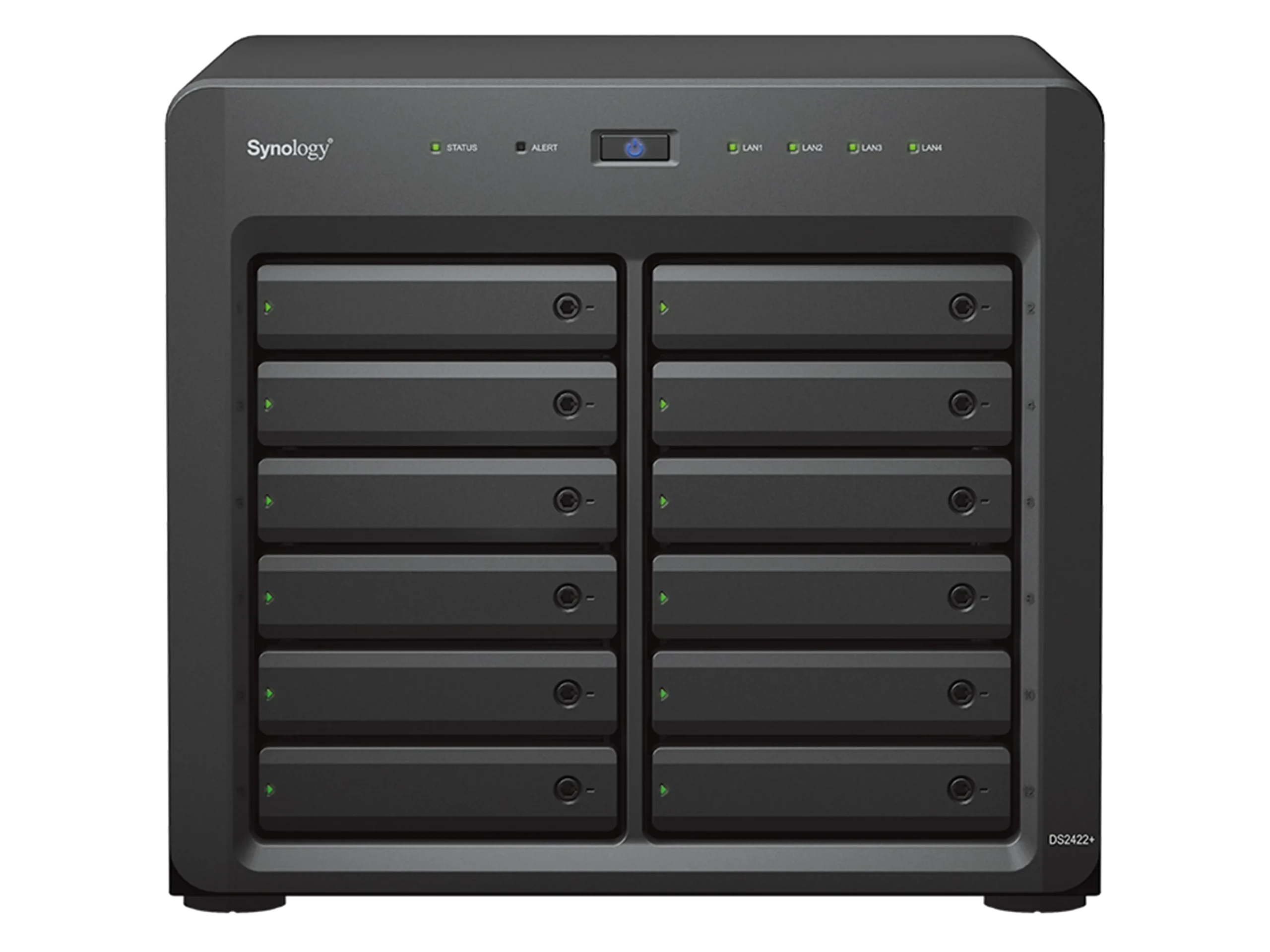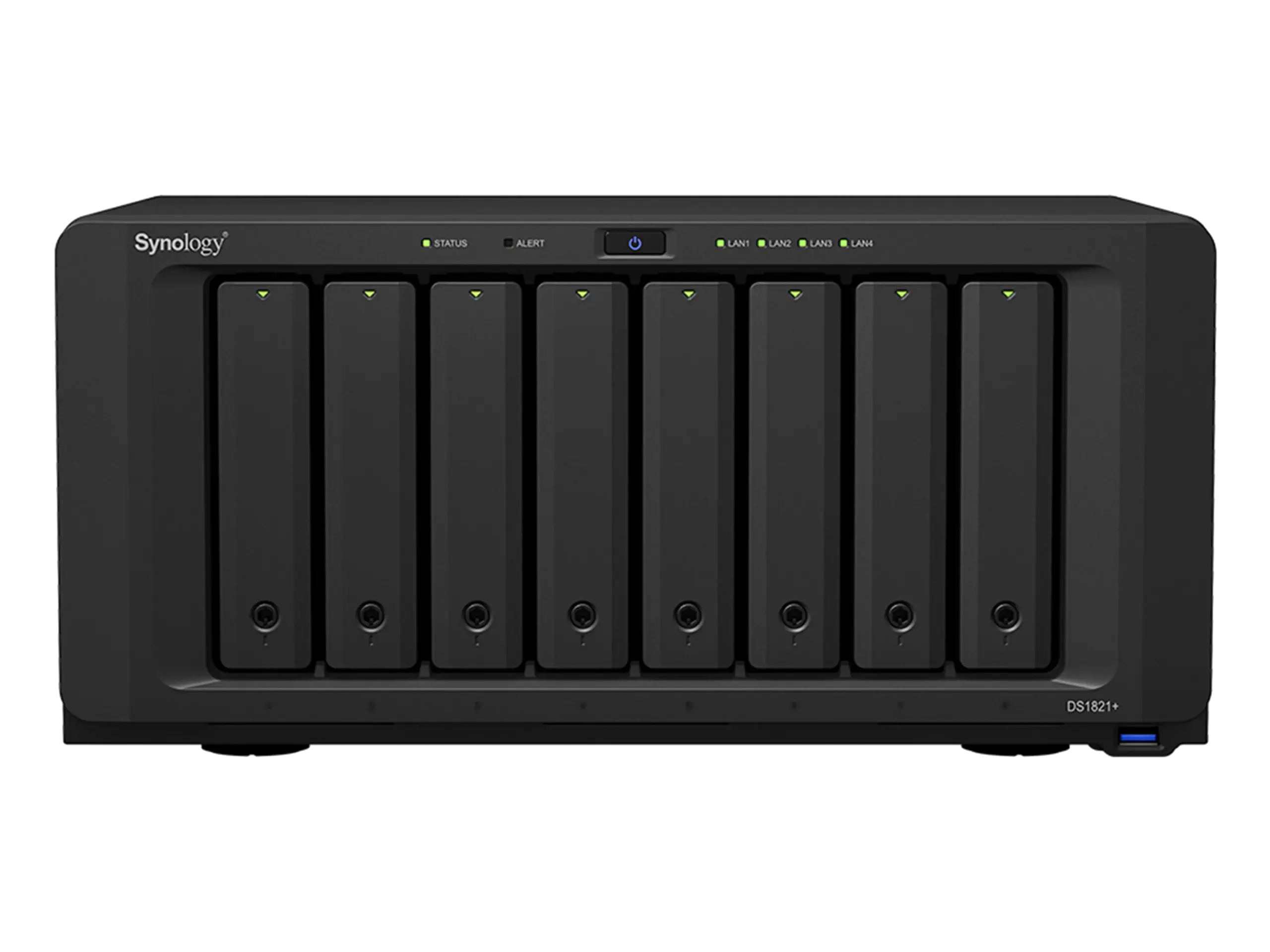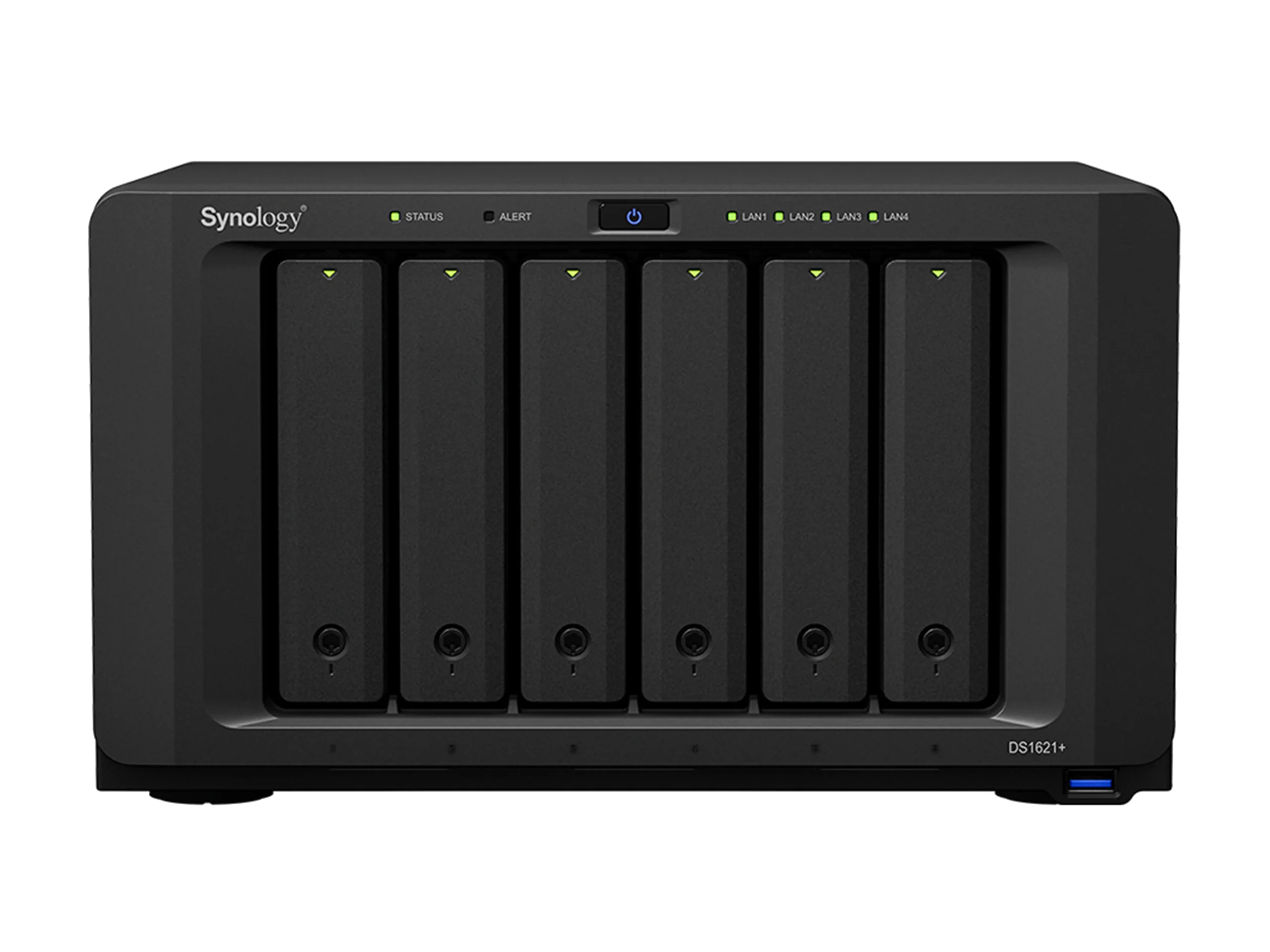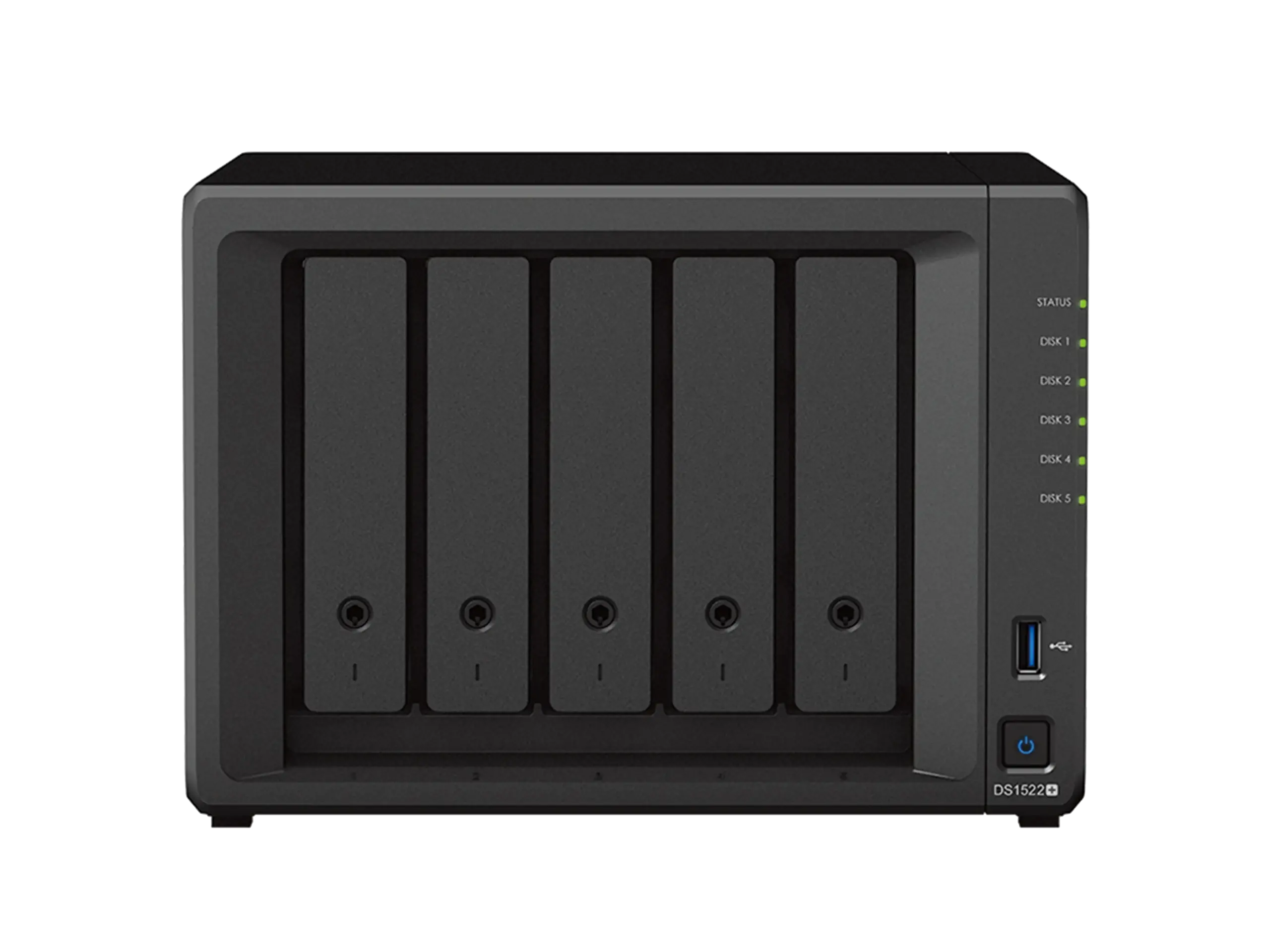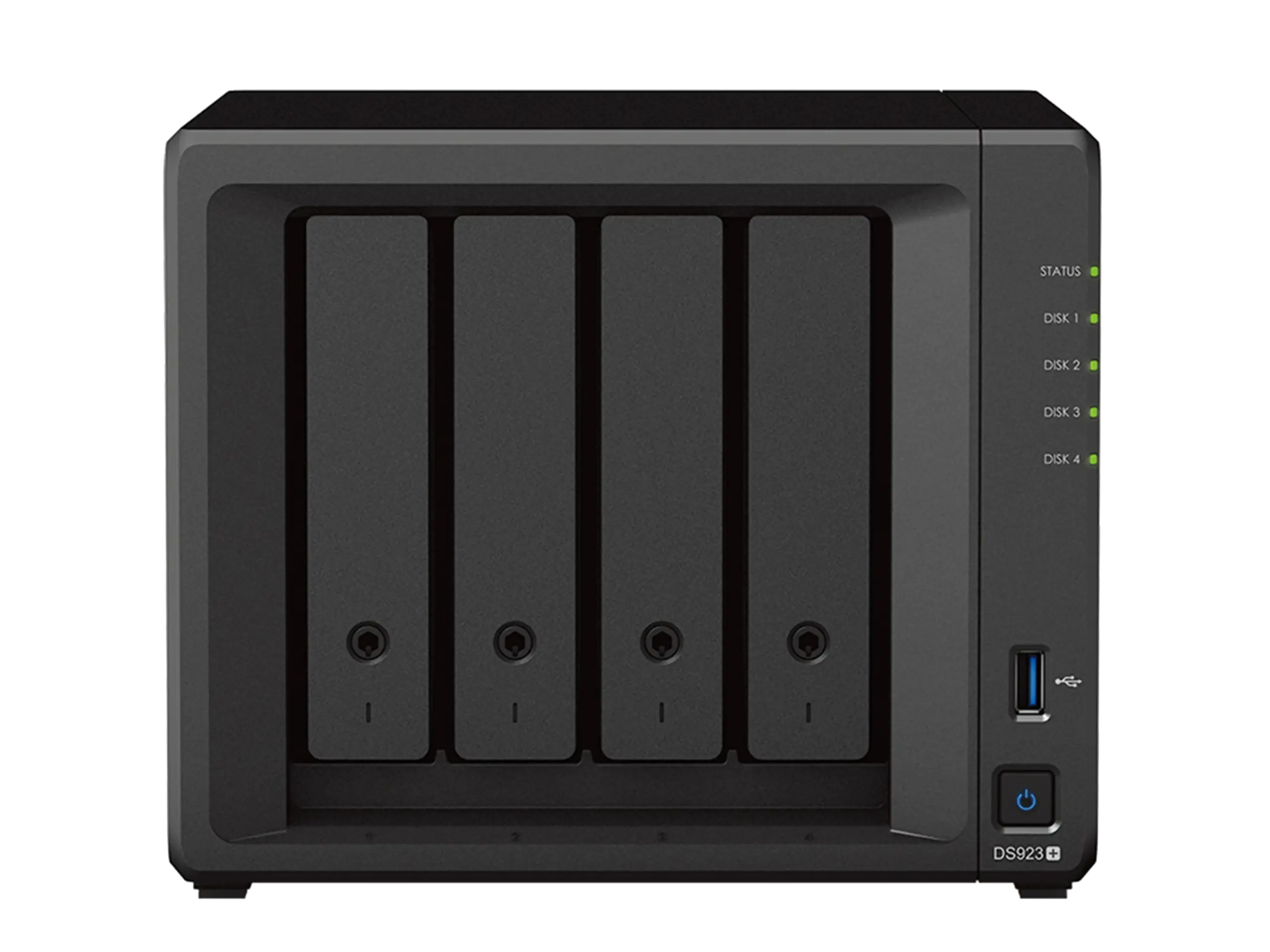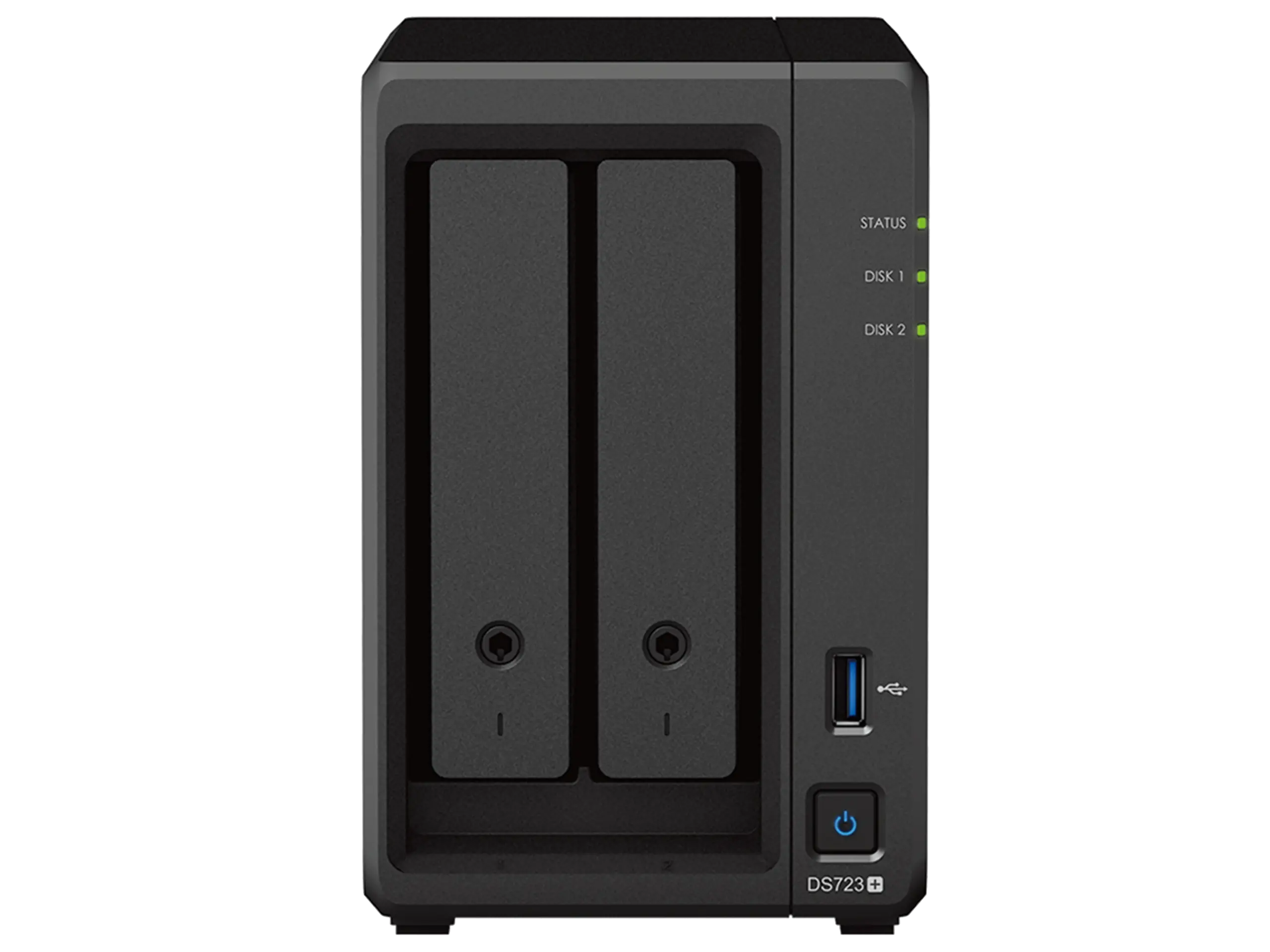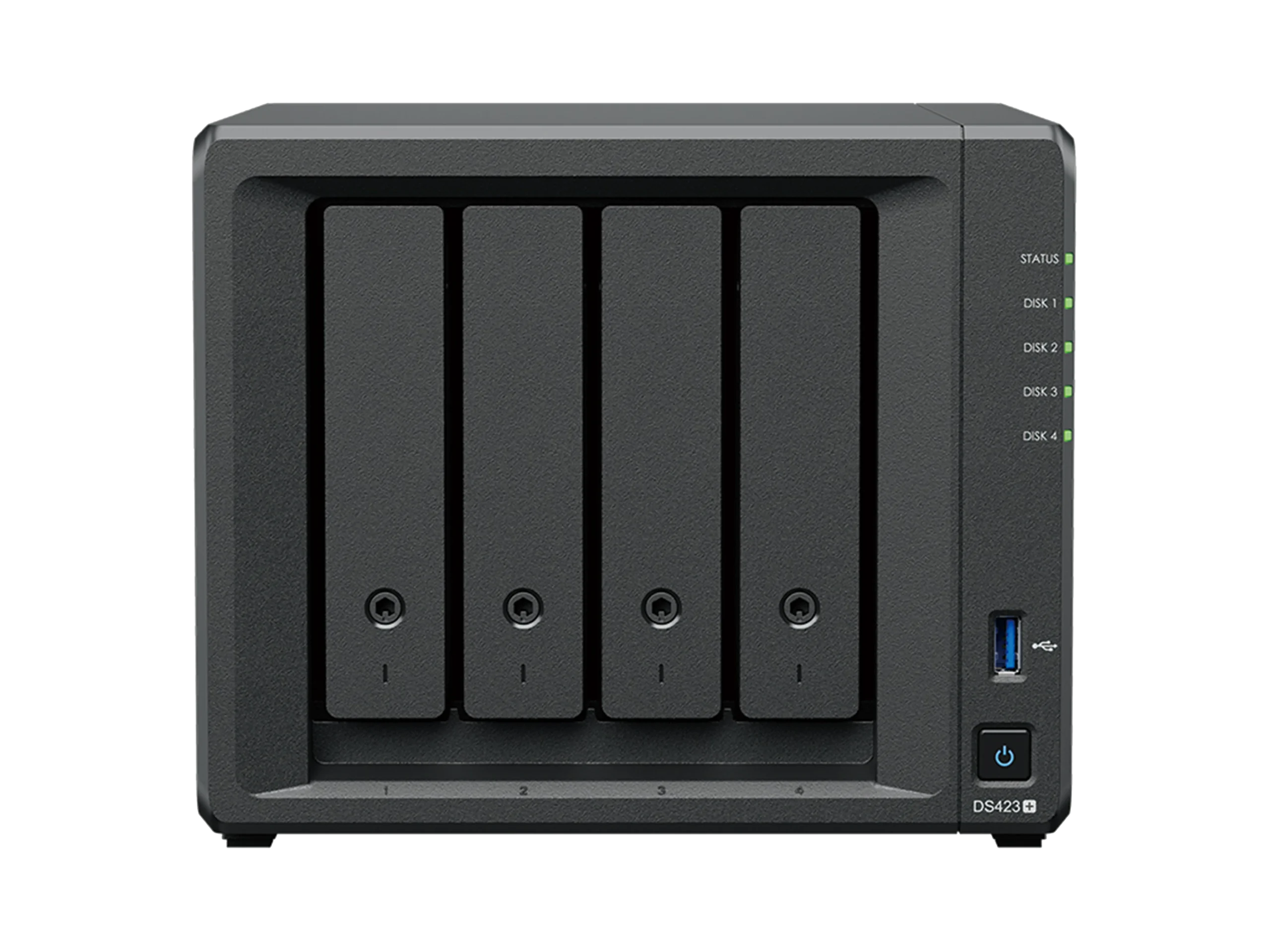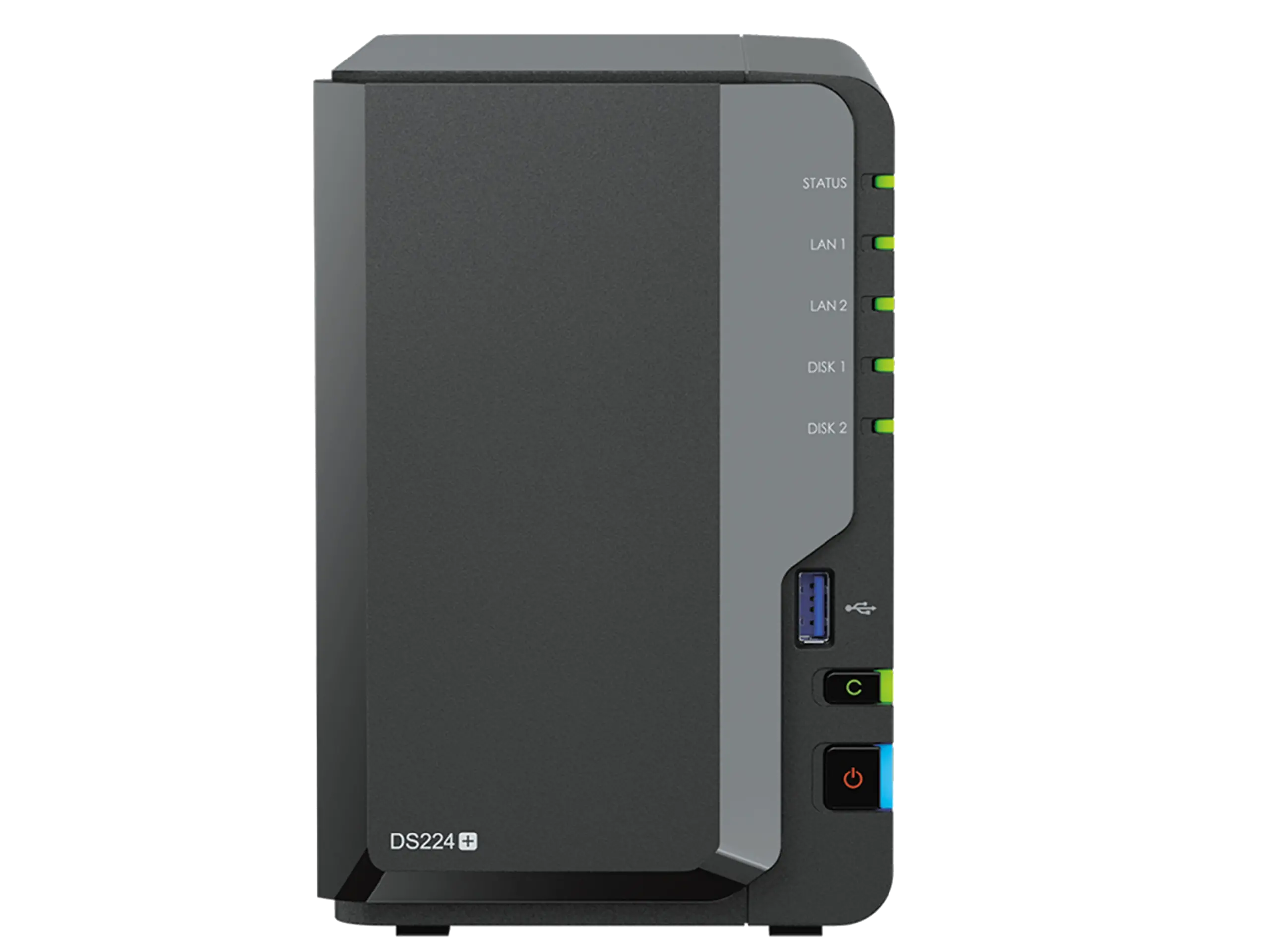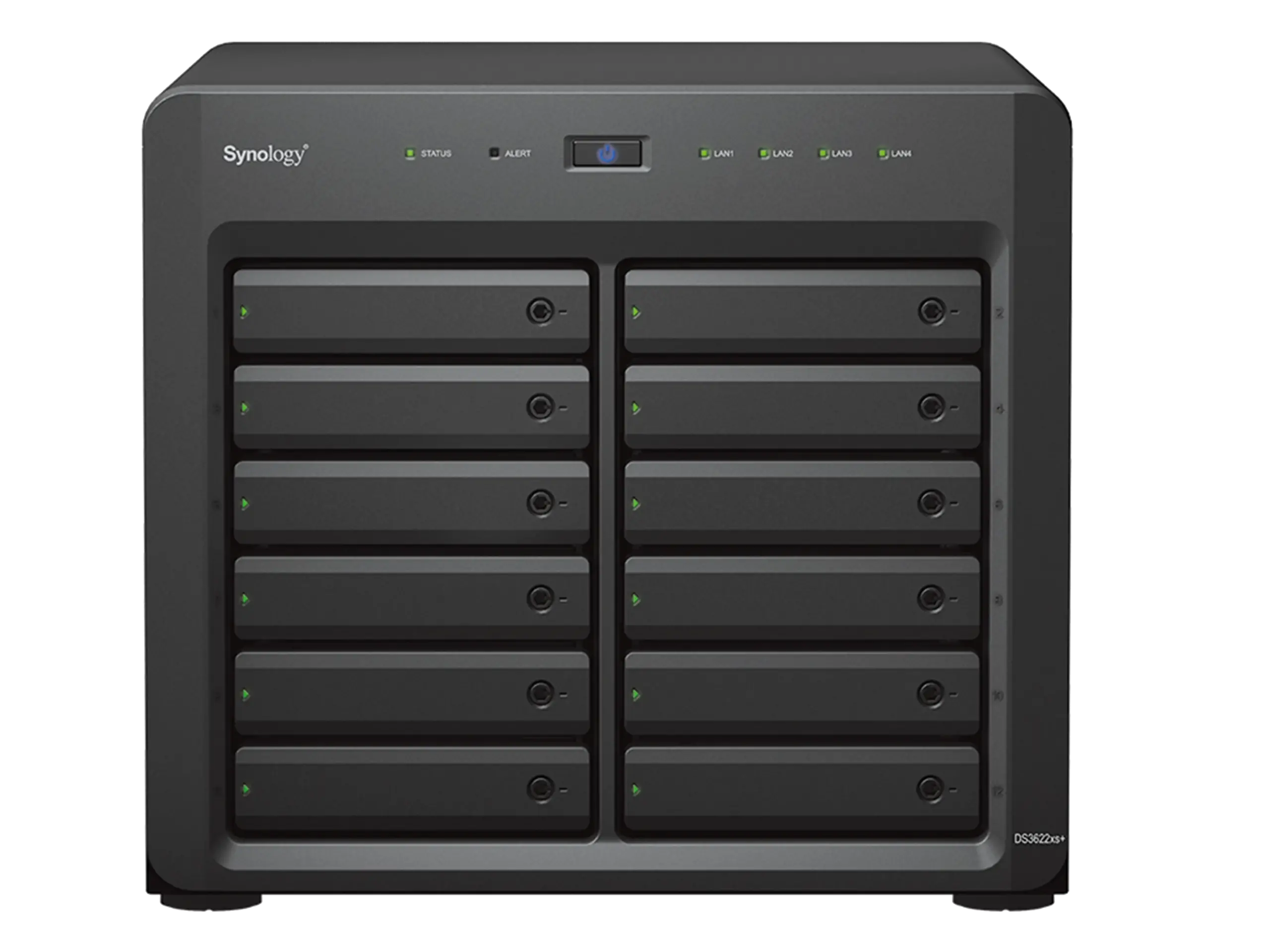NAS vs External Hard Drive: Which One Should You Choose?
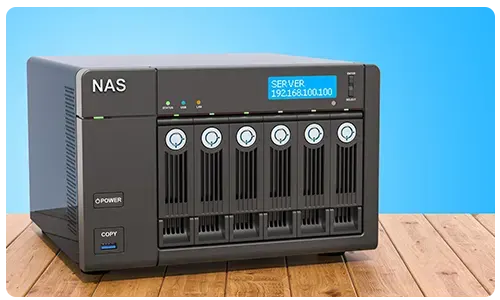

Before comparing NAS vs External Hard Drives, let’s first clarify what each storage option is and how they function
What is a NAS (Network Attached Storage)?
NAS (Network Attached Storage): NAS is a dedicated storage device that connects to your network, allowing multiple devices to access it simultaneously over the internet or a local network. It’s
essentially a small server that acts as a centralized storage unit. NAS is especially useful for businesses or home networks that require shared access to files, backups, or media storage.
NAS systems excel in environments where multiple users need to access shared files, such as small businesses or homes with multiple devices requiring consistent access to the same data.
Key Features of NAS:
- Accessible over a network for multiple users.
- Advanced features such as RAID redundancy and automated backups.
- Ideal for environments requiring remote access to files.
For example, a NAS device like Synology allows you to stream media, share files, and back up data across various devices seamlessly.
What is an External Hard Drive?
External Hard Drive: An external hard drive, on the other hand, is a portable storage device that connects to your computer or laptop through USB, Thunderbolt, or other similar ports. It’s typically used for personal storage, file backups, or expanding the storage capacity of a single device.
External HDDs are ideal for personal backups, storing media fi


les, and transferring data between computers. Their simplicity makes them perfect for users who need straightforward storage solutions without complex setup procedures.
These devices come in two main types:
- Traditional Hard Disk Drives (HDD): Offering larger capacities at lower prices
- Solid State Drives (SSD): Providing faster speeds but at a higher cost per gigabyte
- Key Features of External Hard Drives:
- Portable and easy to use.
- No network setup is required.
- Limited to local file access.
When comparing an External HDD vs NAS, one significant advantage of external hard drives is their affordability and ease of use for personal data storage.
NAS vs External Hard Drive: A Detailed Comparison
- Cost:
– External HDD: Lower initial investment ($50-200)
– NAS: Higher upfront cost ($200-1000+) - Capacity:
– External HDD: Limited to single drive capacity
– NAS: Scalable with multiple drive bays - Performance:
– External HDD: Direct connection speeds
– NAS: Network-dependent speeds - Security:
– External HDD: Basic password protection
– NAS: Advanced user management, encryption, and access controls - Ease of Use:
– External HDD: Plug-and-play
– NAS: Requires initial setup and configuration
NAS vs External Hard Drive: Comparing Key Features
| Feature | External HDD | NAS |
| Portability | High | Low |
| Multi-user access | No | Yes |
| Remote access | Limited | Advanced |
| Backup options | Basic | Comprehensive |
| Media streaming | Limited | Advanced |
| File sharing | Basic | Advanced |
Advantages and Disadvantages of NAS vs External Hard Drive
Advantages of NAS:
Remote Access:
You can access your data from anywhere as long as you have an internet connection.
Multi-Device Access:
NAS allows multiple users to access the same data, making it ideal for shared environments like offices or homes with multiple users.
Data Protection:
With RAID and backup features, NAS ensures your data is safe and secure.
Scalability:
You can increase storage as your needs grow without replacing the entire system.
Disadvantages of NAS:
Price:
NAS devices tend to be more expensive than external hard drives, both in terms of initial cost and maintenance.
Setup Complexity:
Setting up a NAS requires more technical knowledge compared to plugging in an external hard drive.
Power Consumption:
Since NAS devices are always on to provide network access, they tend to consume more power than an external hard drive.
dvantages of External Hard Drive:
Portability:
External hard drives are compact and easy to carry, making them great for backing up and transferring files on the go.
Simplicity:
External hard drives are easy to set up and use just plug them in, and you’re good to go.
Lower Cost:
Generally, external hard drives are more affordable than NAS devices.
Disadvantages of External Hard Drive
- Limited scalability.
- No remote access.
- Vulnerable to physical damage or loss.
When to Choose NAS vs External Hard Drive
Which is Right for You?
When it comes to choosing between a NAS (Network Attached Storage) and an external hard drive, your specific needs will dictate the best option for you. Let’s explore the features and applications of each:
NAS Is Ideal For:
- Centralized Storage: If you need a single hub for all your data, a NAS drive vs External Hard Drive setup is perfect.
- Collaborative Environments: Multiple users accessing data simultaneously.
- Remote Access: With a NAS, you get the benefit of accessing your files from anywhere.
External Hard Drive Is Best For:
- Personal Use: When comparing NAS vs External Hard Drive, an external HDD is sufficient for smaller, personal data storage needs.
- Portability: If you frequently transfer files between locations, an external drive is more practical.
- Cost Savings: For budget-conscious users, the affordability of an external hard drive wins over a NAS drive vs Hard Drive.
Conclusion
The choice between NAS and external hard drive storage ultimately depends on your specific needs and circumstances. External HDDs offer simplicity and portability at a lower cost, while NAS systems provide advanced features and centralized storage for multiple users. Consider your budget, technical requirements, and long-term storage needs when making your decision.
Share your experience with either storage solution in the comments below, or contact the Storage Distributor in Dubai if you have specific questions about implementing either option in your setup.
Remember to regularly backup your important data, regardless of which storage solution you choose. Your data’s security and accessibility should always be the top priority in making this decision.




